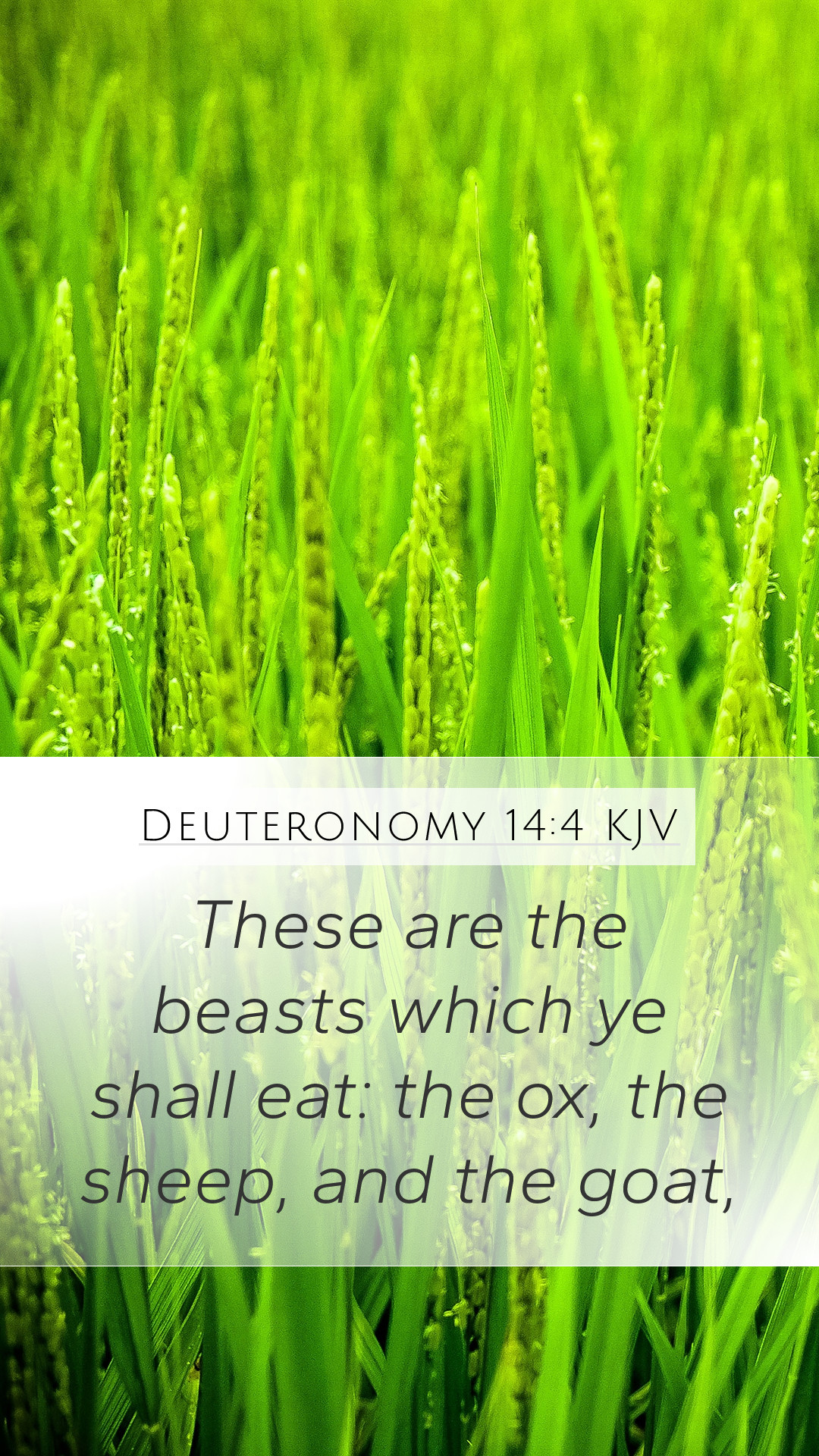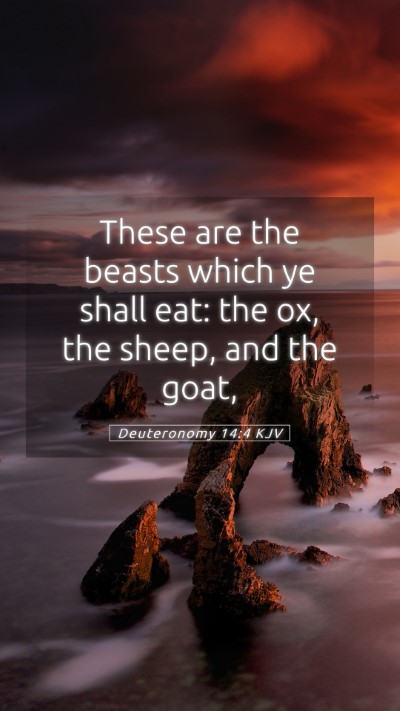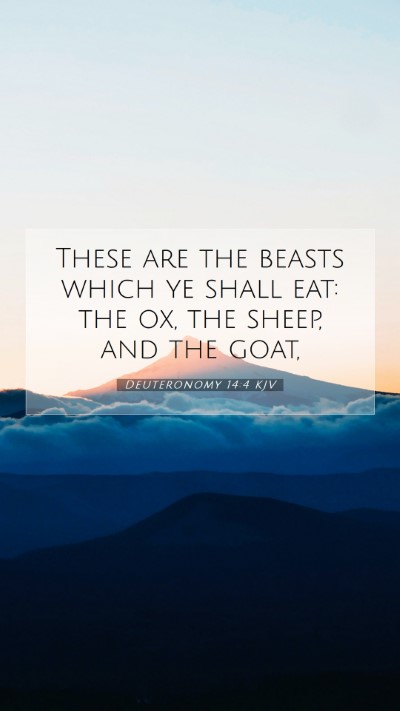Understanding Deuteronomy 14:4
Verse: Deuteronomy 14:4 states, "These are the animals which ye shall eat: the ox, the sheep, and the goat," (KJV).
Overview
This verse is part of a larger discourse on dietary laws given to the Israelites. It specifies types of clean animals that are permissible to eat according to Mosaic Law. Understanding this verse offers deep insights into the cultural, spiritual, and legal framework within which the ancient Israelites operated. The dietary laws were meant to set Israel apart from other nations and promote holiness and obedience to God.
Bible Verse Meanings
As we delve into the bible verse meanings, it is essential to recognize that these laws provided structure to daily life for the Israelites. The clean animals mentioned—ox, sheep, and goat—held significance both economically and ritually.
1. Ceremonial Cleanness
- Matthew Henry: He notes that the distinction between clean and unclean animals serves a ceremonial purpose, reinforcing the holiness required by God.
- Albert Barnes: He emphasizes that these laws aimed to instill discipline and promote an awareness of God's commandments in daily living.
- Adam Clarke: Clarke highlights that cleanliness was not merely physical but also symbolic—illustrating the spiritual purity expected from the people.
2. Spiritual Separation
The distinction served to separate Israel from surrounding nations, calling them to a unique identity and lifestyle.
Understanding Scripture here implies recognizing the purpose of these laws as a means to foster spiritual obedience and community cohesion.
Biblical Exegesis of Dietary Laws
Examining this verse through scripture analysis reveals principles that go beyond dietary restrictions; they were part of a covenantal relationship between God and His people.
- Symbolism: Different animals symbolize various aspects of spiritual life and purity.
- Historical Context: Understanding the customs of neighboring tribes enhances our bible study insights.
Applying Bible Verses to Daily Life
While these specific dietary laws may not directly apply today, the underlying principles of holiness, discipline, and separation from secular influences remain relevant.
Practical Applications
- Personal Cleansing: Just as dietary laws promote physical cleanliness, we are called to maintain spiritual purity.
- Intentional Living: This reinforces the need for intentionality in our choices, mirroring the careful selection of clean animals.
- Community Identity: Emphasizing community standards and ethics, signifying a collective commitment to God.
Related Biblical Cross References
This verse aligns with numerous other biblical contexts, enhancing its significance:
- Leviticus 11:2-3: Further expounds on clean and unclean animals.
- Acts 10:15: New Testament perspective on dietary restrictions.
- 1 Peter 1:16: Emphasizes the call to holiness.
Conclusion
To summarize, Deuteronomy 14:4 emphasizes the importance of understanding not only the meaning of Bible verses but also their broader implications for spiritual living. These dietary laws invite us to reflect on our own commitments to holiness and discernment in daily choices. Engaging with such bible study resources will deepen our understanding of both God's Word and its applications today.


